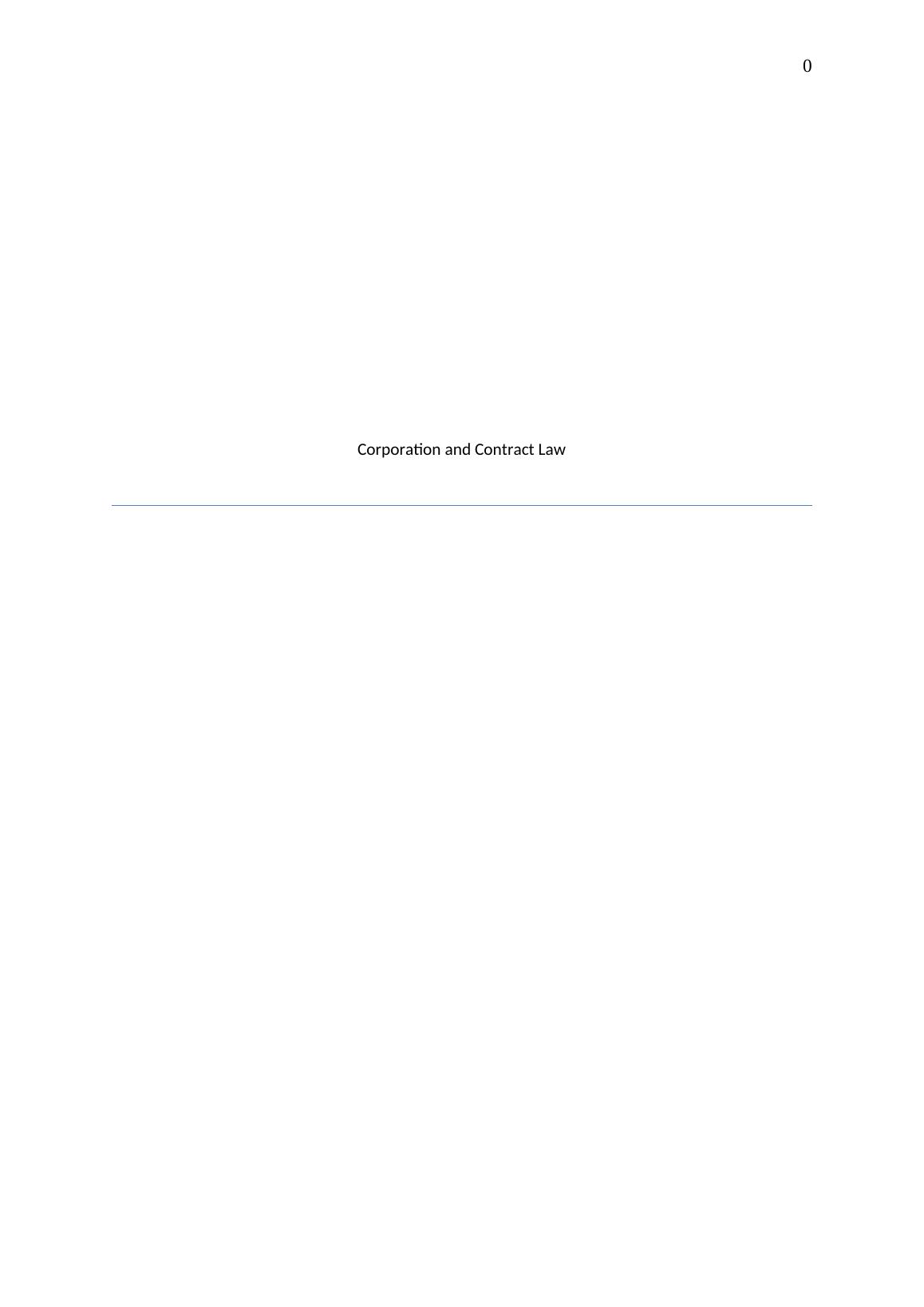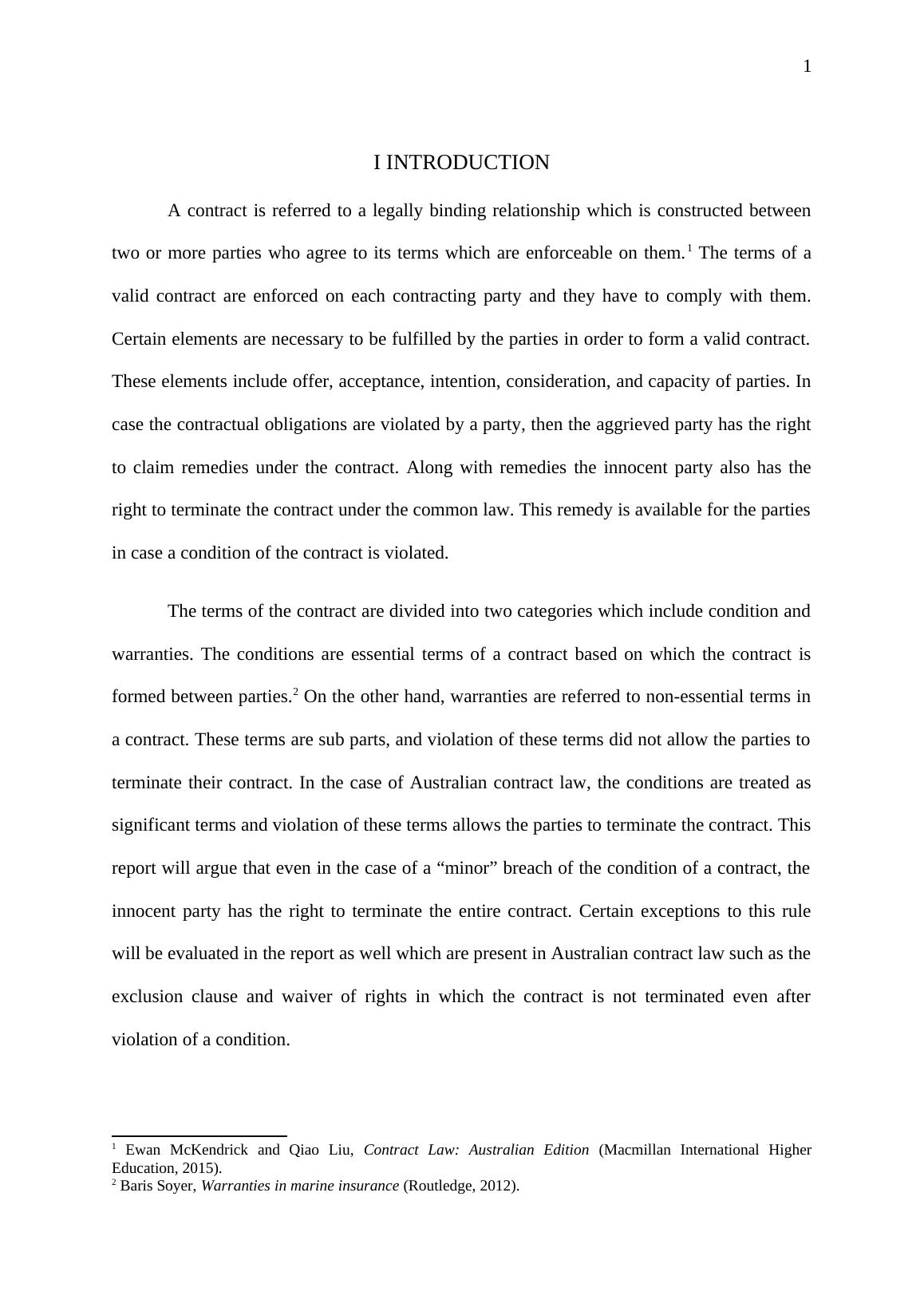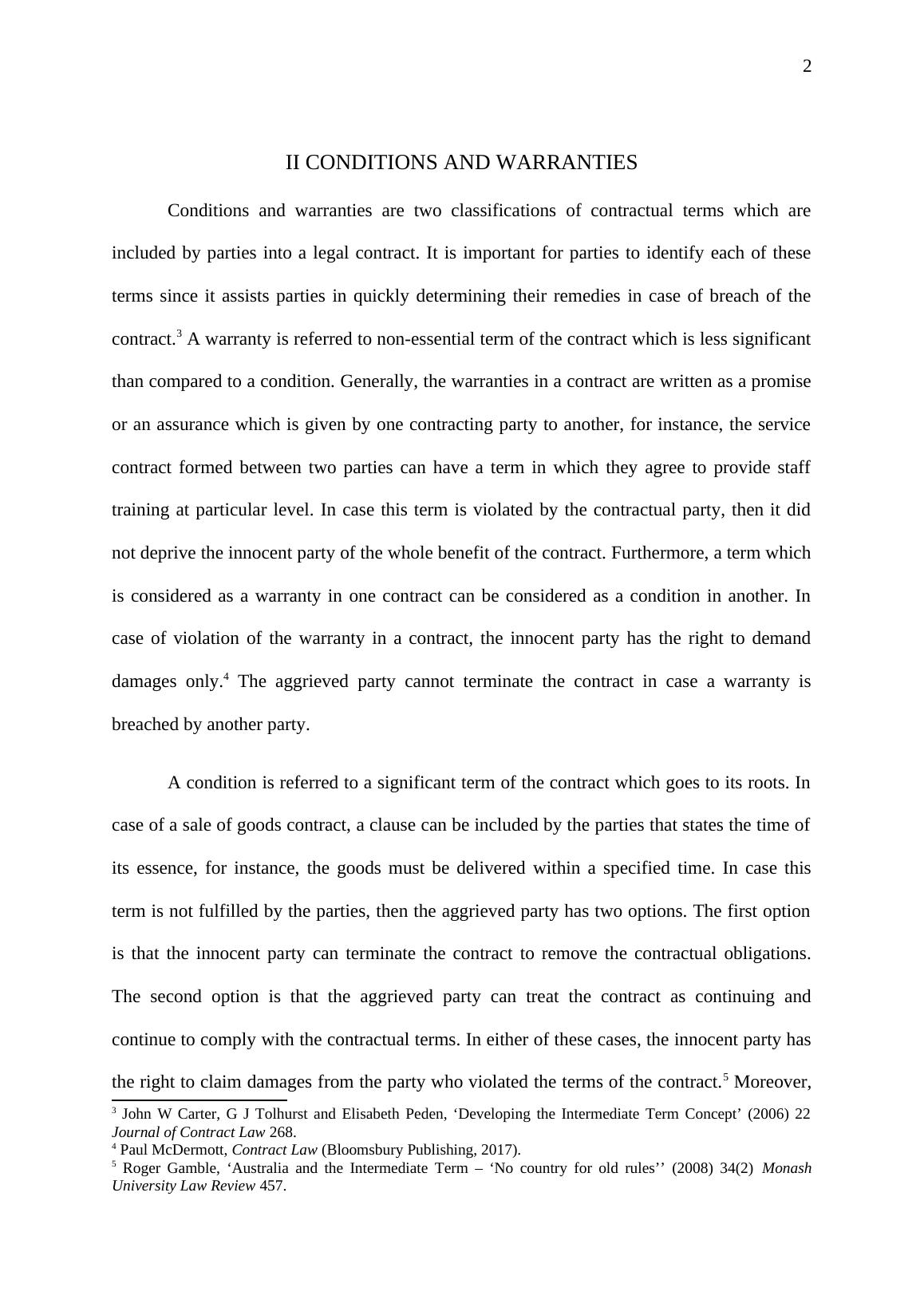Conditions and Warranties in Australian Contract Law
Discuss whether the statement accurately reflects the position in Australian contract law regarding termination of a contract for breach of condition.
10 Pages2762 Words265 Views
Added on 2023-06-04
About This Document
This report discusses the significance of conditions and warranties in Australian contract law. It argues that even in the case of a “minor” breach of the condition of a contract, the innocent party has the right to terminate the entire contract. Certain exceptions to this rule will be evaluated in the report as well which are present in Australian contract law such as the exclusion clause and waiver of rights in which the contract is not terminated even after violation of a condition.
Conditions and Warranties in Australian Contract Law
Discuss whether the statement accurately reflects the position in Australian contract law regarding termination of a contract for breach of condition.
Added on 2023-06-04
ShareRelated Documents
End of preview
Want to access all the pages? Upload your documents or become a member.
Corporation and Enterprise Law
|11
|2447
|52
Contractual Rights and Obligations - Assignment
|5
|1488
|85
Assistance/Financial Compensation for Violation of Contract in Company and Commercial Law
|6
|1298
|123
UK Law Regarding Contracts Breach and Remedies
|8
|1673
|63
Ceasing of a Contract and Remedies for Breach of Contract
|5
|1331
|202
Assistance to James in Contractual Violation, Negligent Misrepresentation and Legal Issues under ACL
|6
|1309
|399



